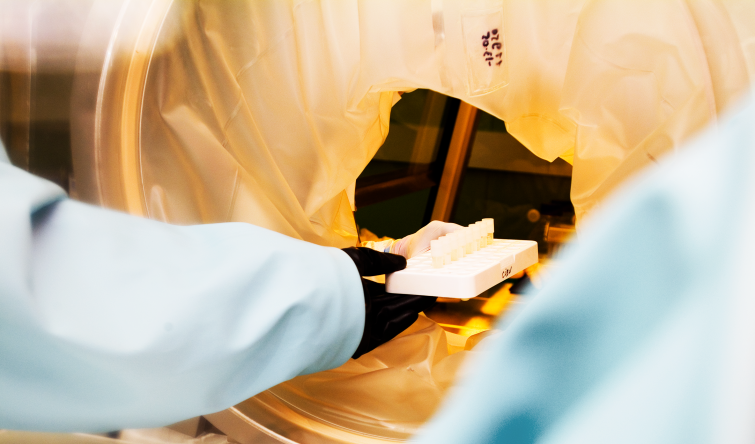
 Research
Research
Biological safety: seminar and workshops to discuss experience using microorganisms and toxins
On Monday September 10, from 9am to 5pm, the Institut Pasteur and the French Agency for Food, Environmental and Occupational Health and Safety (ANSES) held a joint seminar and workshop day to give participants the opportunity to share their experiences and practices following implementation of the French Regulation on Microorganisms and Toxins (MOTs), enshrined in Article L.5139-1 of the Public Health Code.
More than 50 people attended this first event, which was opened by Stewart Cole, President of the Institut Pasteur, and Roger Genet, Director General of ANSES.
The seminar was aimed at staff from the two organizations involved in managing and using microorganisms and toxins (MOT permit holders, those authorized to handle MOTs, directors of laboratories or units, staff involved in biological safety and security, etc.).
After short presentations giving an overview of how MOTs are managed at the two organizations, the rest of the day was based around workshops exploring the management and use of MOTs, the distribution of roles and responsibilities for managing MOTs, risk assessment, incident management, training, communication and inter-institutional dialog.
By the end of the day, a joint roadmap had been drawn up for continued collaboration in this area, including a joint grid to rate accidents and incidents and the introduction of a cross-auditing system between the two institutions for biological safety and security.
The seminar was also an opportunity to present the conclusions of discussions on changing some points in the MOT regulation. These conclusions, the result of a joint reflection process between ANSES and the Institut Pasteur, highlight the potentially counterproductive and even harmful consequences of some aspects of the regulation – which are specific to France and are not applied by any of the Institut Pasteur's scientific partners. These stringent requirements may increase the risk of organizations relinquishing collections, ceasing activities or losing skills.
The Technical Resources and Environment Department would like to thank all participants for their enthusiasm, their thoughts and the quality of the discussions held based on feedback from the workshops. The conclusion of this first seminar clearly demonstrated that, by working together, it is possible to improve practices and efficiency when implementing this complex regulation.
At the invitation of Nathalie Denoyés, Vice-President Technical Resources and Environment at the Institut Pasteur, a second edition of the event will be held at the Institut Pasteur in 2019 to continue these collaborative, collective efforts.